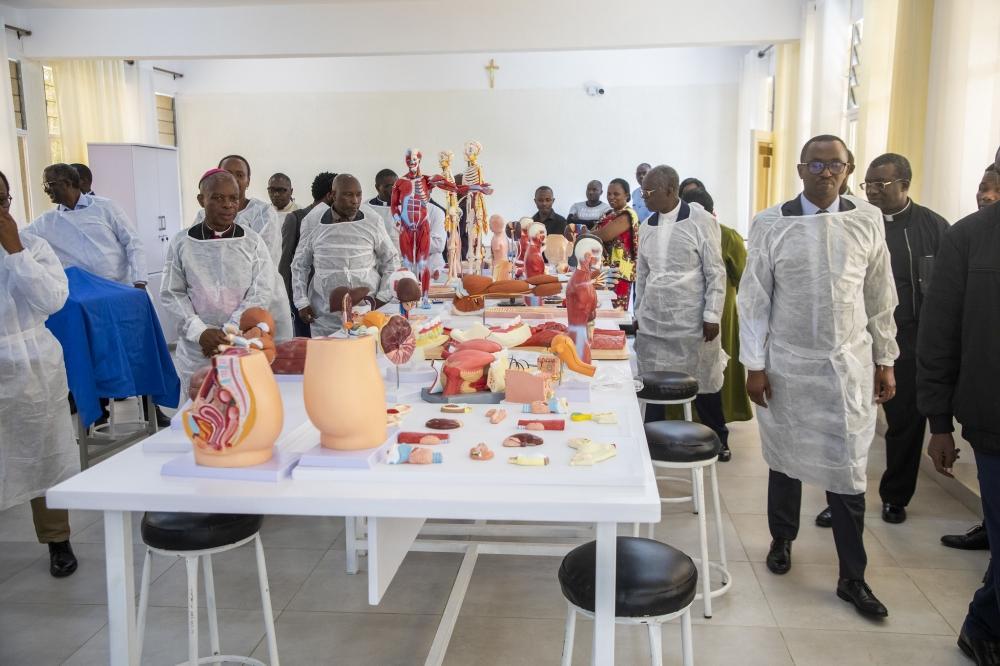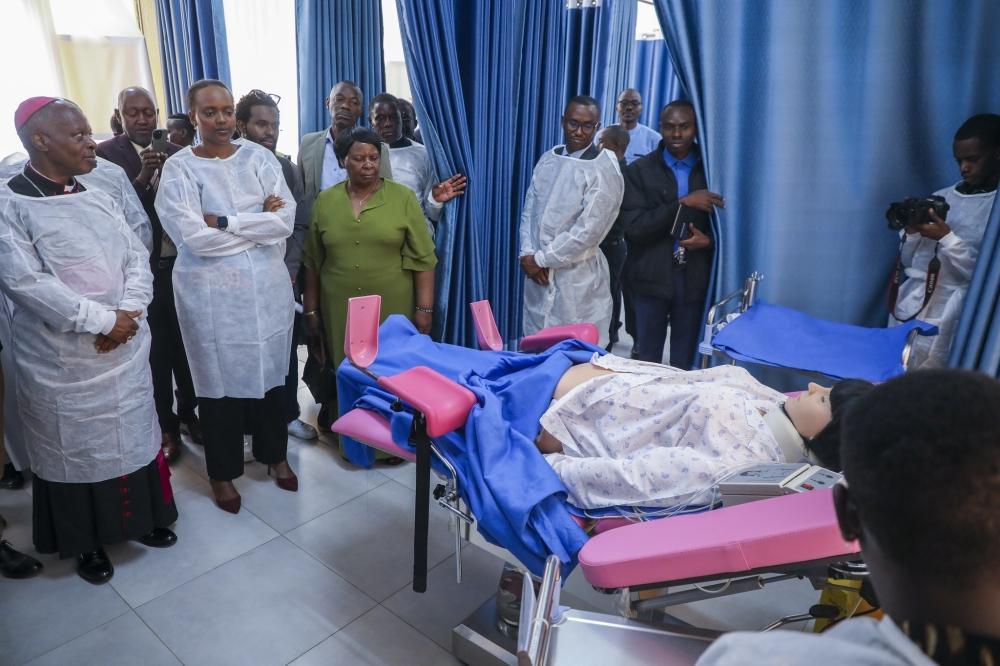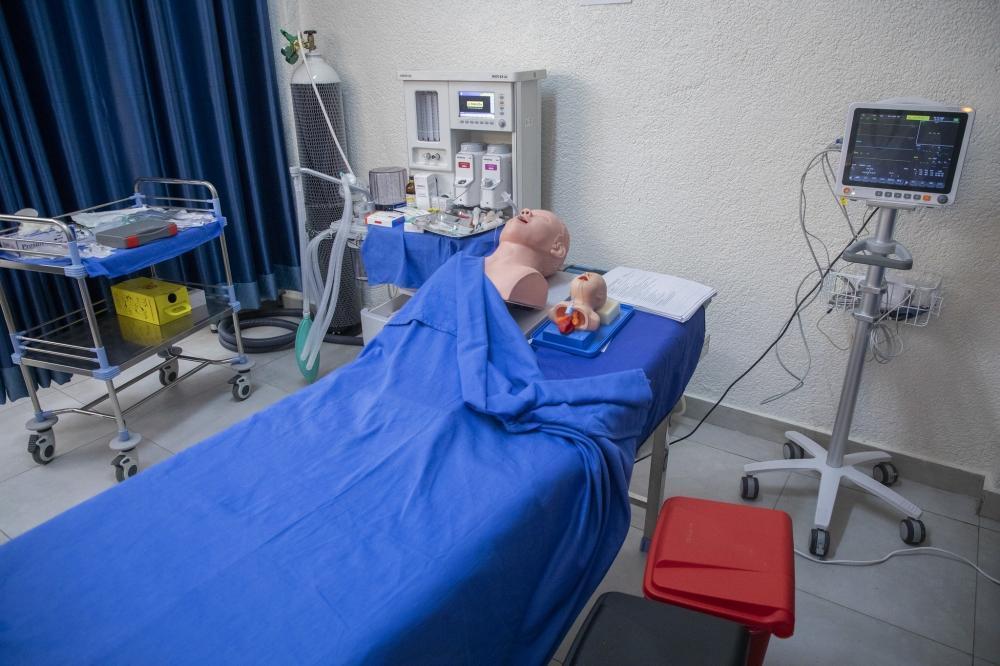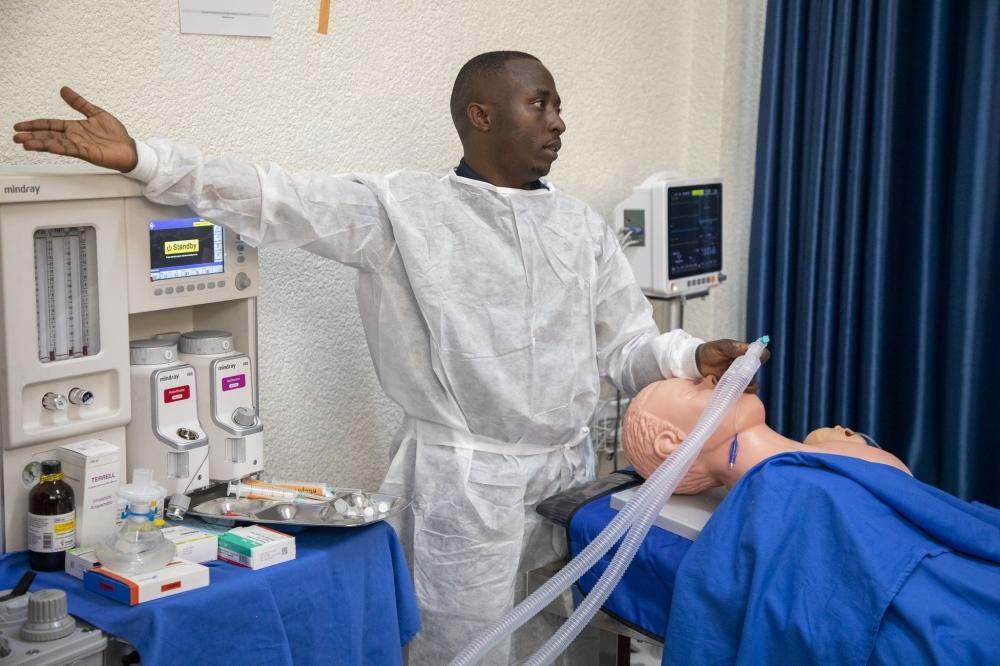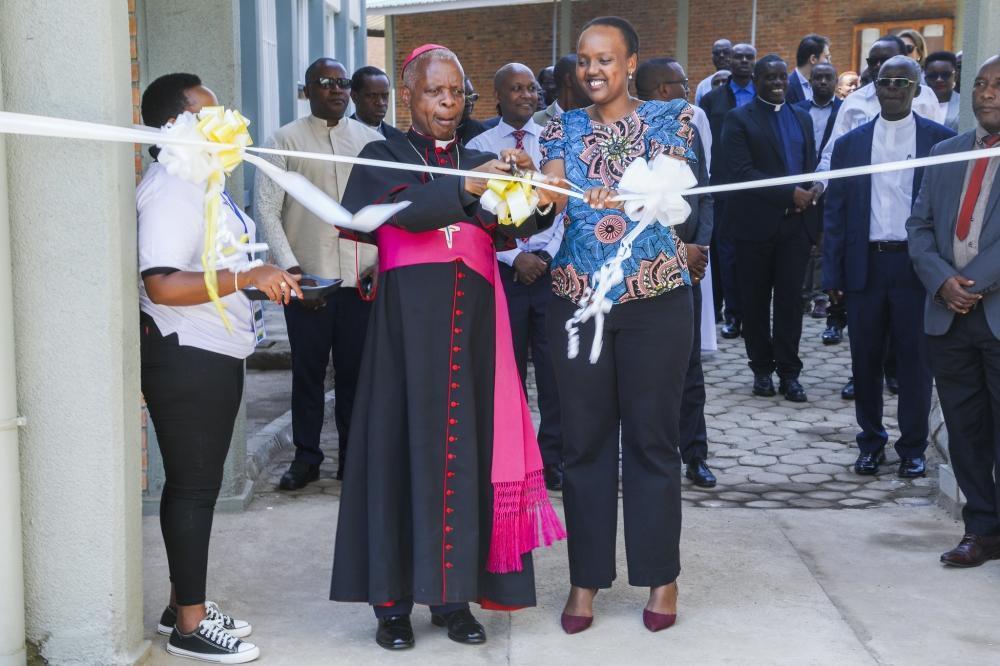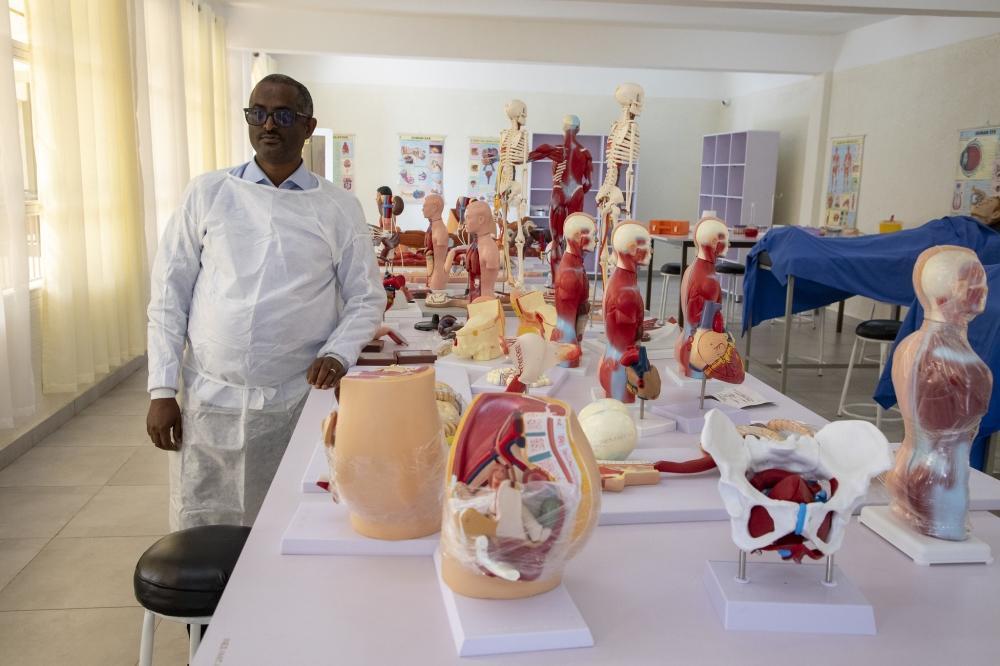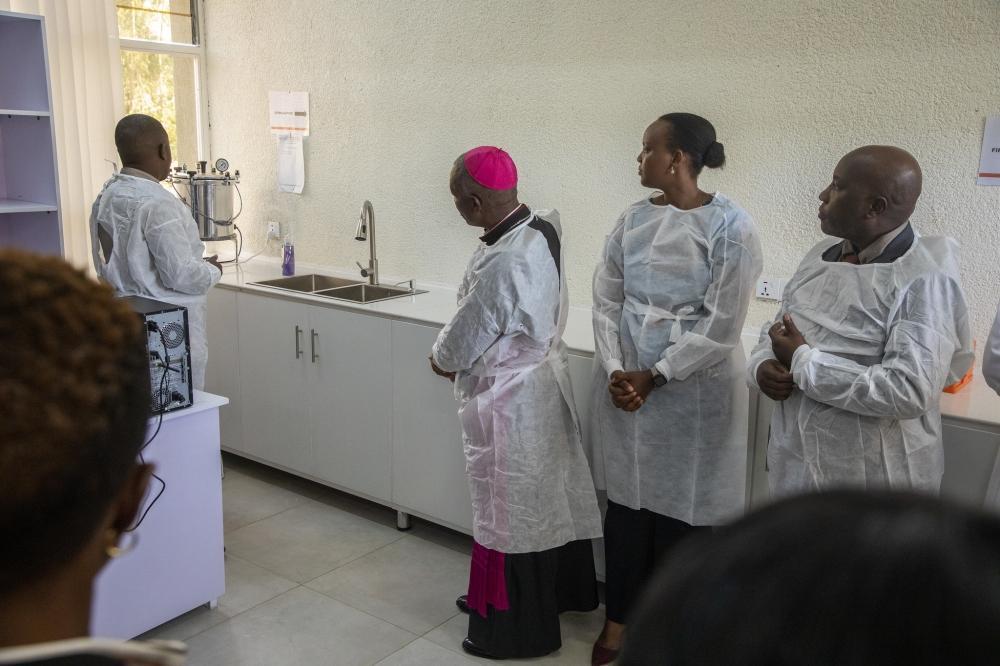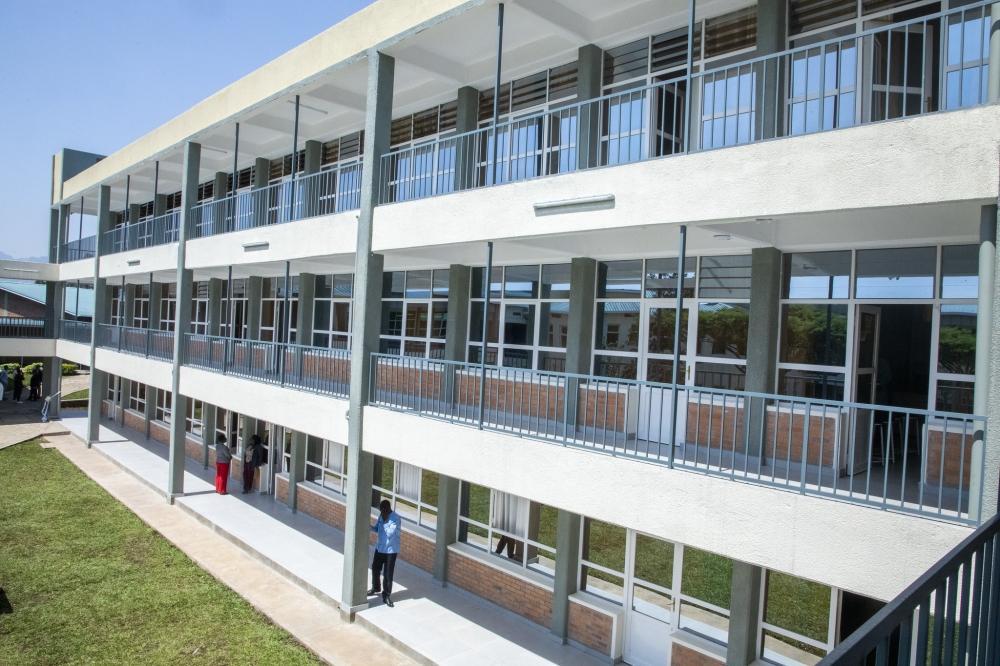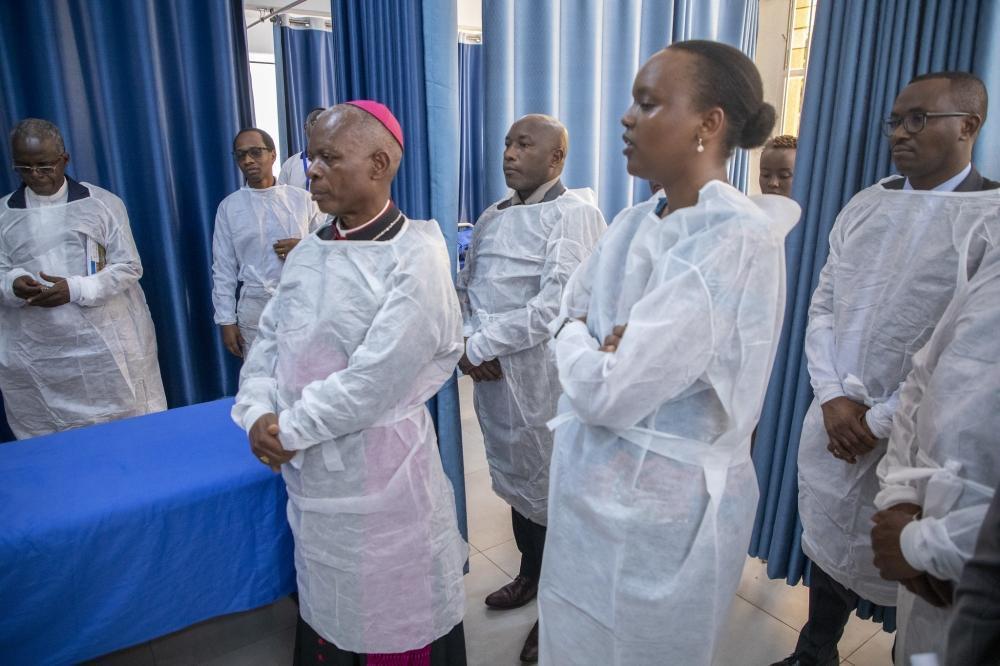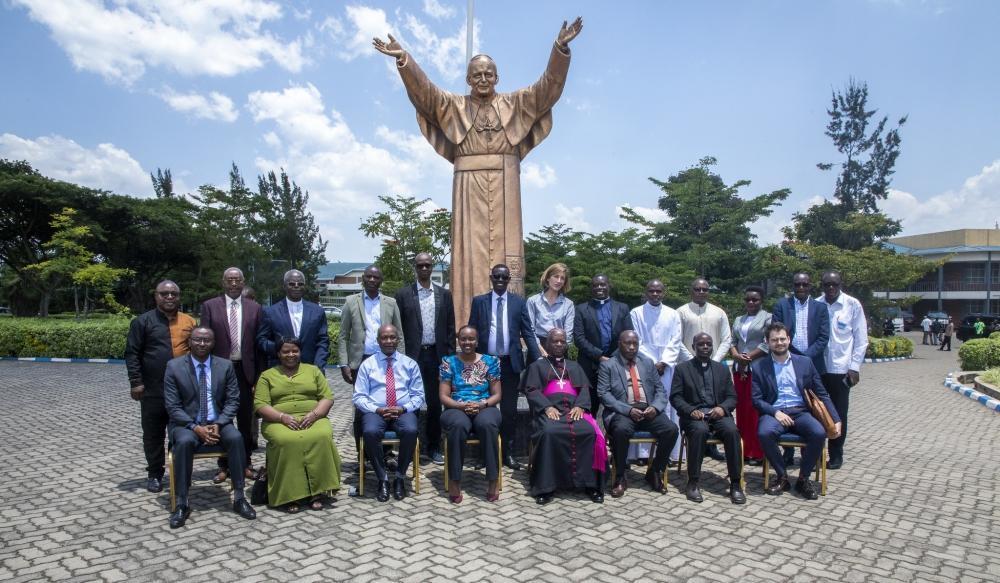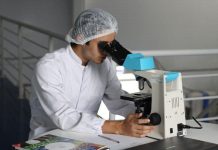Africa-Press – Rwanda. In response to Rwanda’s growing healthcare demands, Institut d’Enseignement Supérieur de Ruhengeri, INES-Ruhengeri, launched a new Health Science programme aimed at training skilled medical professionals, bridging the gaps between education and practice, and delivering skills aligning with national health priorities.
The official launch, held on February 19 at the INES-Ruhengeri campus, brought together university leaders, faculty members, students, government officials, representatives from healthcare organisations and institutions, as well as partners and funding organisations.
The event featured the inauguration of new programme facilities, including laboratories.
Speaking on behalf of the Ministry of Health (MoH), Nicole Jabo, Partnership and Grant Writing Analyst, commended INES-Ruhengeri for reaching this milestone and emphasised the importance of their partnership.
“As the Ministry of Health, we are very pleased with this important milestone,” she noted.
“These are the types of partnerships and collaborations we look forward to.”
Jabo remarked that this new programme supports the Ministry of Health’s 4×4 Reform, which seeks to quadruple the number of healthcare workers in the next four years.
The new Health Science programmes launched are Bachelor of Science in Pharmacy, Bachelor of Science in Anaesthesia, Bachelor of Science in Midwifery, Bachelor of Science in Nursing, Advanced Diploma in Nursing, and Advanced Diploma in Midwifery.
The first cohort of the Health Science programme started their studies on November 8, 2024.
Jabo emphasised that the programme is crucial for meeting Rwanda’s 4×4 agenda, which aims to increase both the quantity and quality of healthcare professionals.
She also expressed confidence in the university’s advanced laboratories, urging students to focus on delivering high-quality healthcare services to Rwandans.
“Once they are focused on Rwandans and giving them the best quality of services that our Rwandans deserve, we believe that this will guide them in the right direction throughout this process and even in the future as they continue to specialise in different healthcare programmes,” she noted.
Fr Dr Jean-Bosco Baribeshya, Vice Chancellor of INES-Ruhengeri, expressed gratitude to all stakeholders involved in launching the programme, particularly the Ministry of Health.
“It brings me great happiness to see how INES-Ruhengeri is fully committed to the four-by-four (4×4) reform, a programme that aims at increasing the number of healthcare workers in the next four years,” she noted.
“Very soon, our students will be solving the needs of people.”
Baribeshya emphasised that introducing health science programmes has been a long-term goal of the university, calling the launch “a dream come true”.
According to Baribeshya, the Ministry of Health has awarded full scholarships to 304 students enrolled in the new programme.
“We thank the Ministry of Education, especially through HEC (Higher Education Council) for their advice on how to improve the programmes and ensure readiness for their initiation,” he added.
Baribeshya underscored that the goal of the programme is to create medical professionals with skills that would help in solving problems in the healthcare sector in Rwanda but also in Africa and on a global scale.
“These new health programmes should help us in improving ethics and values that lead to respecting, saving, maintaining, and honouring lives even during their last minutes,” he added.
The vice chancellor reminded the students that they are the first cohort of the programme and should maximise that opportunity.
He further highlighted that some graduates from the first cohort of the new Health Science programme will be honoured during the university’s 25th-anniversary celebration in 2028.
Naome Uremye, the programme’s student representative, pursuing Bachelor of Science in Anaesthesia, expressed gratitude to the Ministry of Education for the scholarship opportunities, emphasising their commitment to making a lasting impact in Rwanda’s health sector.
“This scholarship has not only alleviated the financial burden of our education but also empowered us with tools necessary to make a lasting impact in Rwanda’s healthcare system,” she noted.
She reminded her fellow students that the scholarship is an investment in the country’s future and urged them to work hard, excel in their studies, and become skilled, ethical healthcare professionals.
Uremye also underscored that the scholarship is not just financial support but also a call to action to focus on their goals as students to become competent and compassionate healthcare service professionals.
“We will strive to excel in all aspects of our education, ensuring that we develop the expertise, ethical values, and problem-solving skills required to face challenges in our health service system,” she noted.
Dr Jean-Bosco Bugingo, Director of Laboratories at INES-Ruhengeri, highlighted that for each department of the Health Science programme, there is a designated laboratory (lab skills) that allows students to train and practice.
“For each department, there is a lab that supports. For example, for anaesthesia where we have different machines and equipment and supplies that will help students to do simulations of what they will be doing when they start their jobs or careers,” he said.
According to Bugingo, to ensure students receive hands-on training, INES-Ruhengeri has invested in five specialised laboratories dedicated to different areas of health science, including anaesthesia skills lab, midwifery skills lab, two pharmacy skills labs (Pharmacology and Toxicology Lab), nursing skills lab, and Anatomy and Physiology Lab.
“Apart from these laboratories, there are other existing laboratories and facilities which the students can use,” he added.
Bugingo underscored that these facilities are equipped with modern tools to help students gain practical experience before entering the workforce.
Bugingo emphasised that INES-Ruhengeri is not just training professionals for the local market but also for regional and global healthcare systems.
“When I see these labs, we are not training for local. It is for regional or global,” he said.
“Students who will leave INES can serve everywhere around the world.”
The new Health Science programme aimed at training skilled medical professionals, bridging the gaps between education and practice, and delivering skills aligning with national health priorities.
For More News And Analysis About Rwanda Follow Africa-Press

